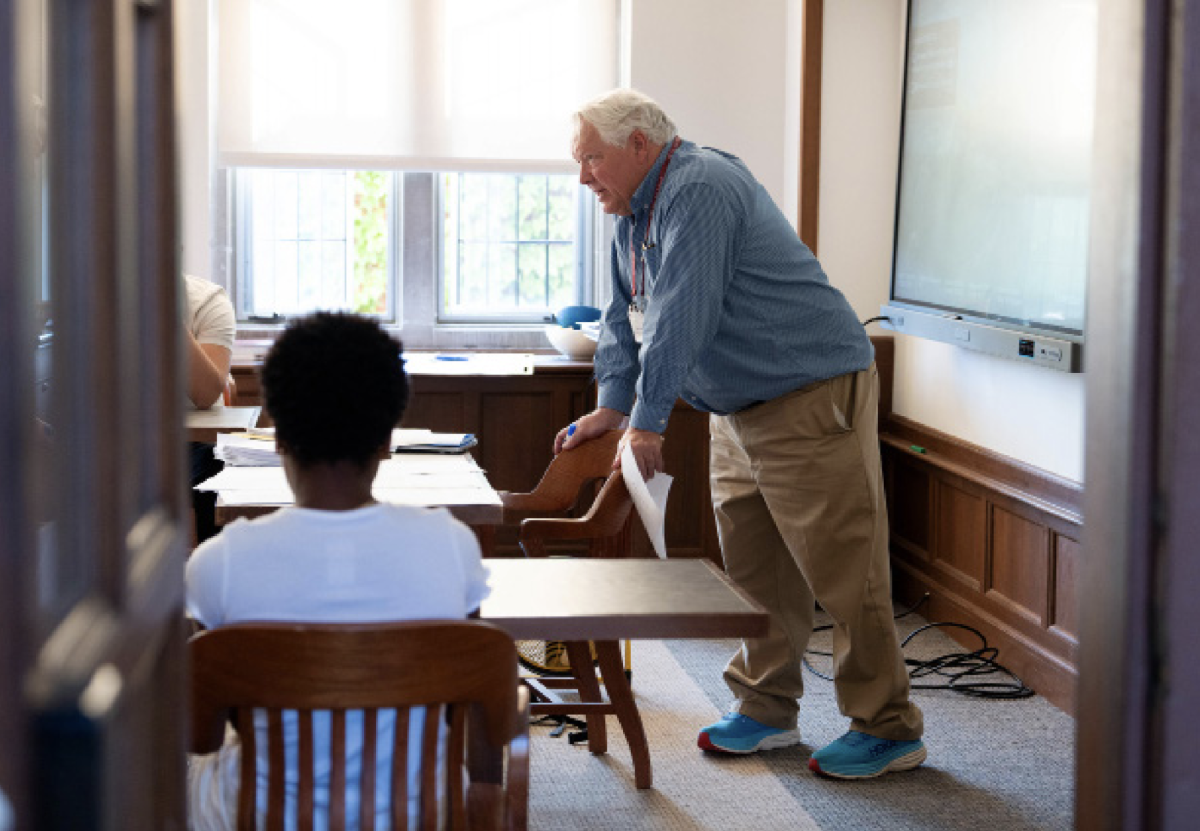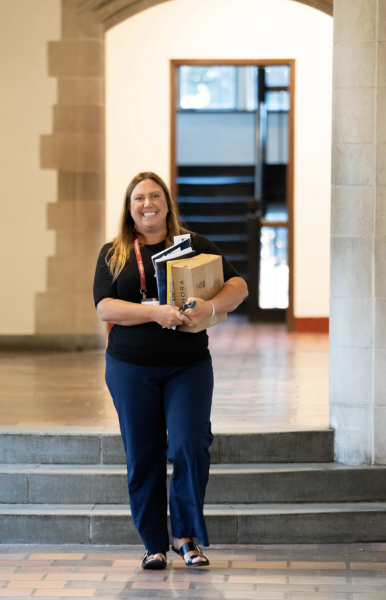
Mr. Falcetti
The History Department is one of the most exciting on campus, thanks to its ever-evolving elective offerings alongside staples like Comparative Government. Students are required to take U.S. History as well as two semesters of a non-U.S. history, but beyond that, they can choose from a huge array of electives. What makes the History Department stand out is that many courses are offered on a semester basis, giving students the flexibility to alternate between History, Art electives, or other electives. When I spoke with Brianne Foley, Head of the History department, she highlighted the move from the AP system as the catalyst for change in the History department. done after the 2021-2022 school year, my freshman year.
The AP system, or Advanced Placement, is a selection of courses that culminate in an exam held in early May, known as the AP Test. These AP courses only allowed for year-long courses which made it hard for students to choose electives over APs. Taft shifted away from those classes after the 2021-2022 school year, keeping some as Honors classes, and making way for new electives. Mrs. Foley explains the approach to re-imagining course offerings, sharing “As the school moved away from the AP, the History Department’s first move was to survey the students to capture their interests so that history electives could reflect student demand for courses.

We used rating systems for students to choose which areas of the world, in which time frames, and certain topics that students are passionate about. We also gave the opportunity for students to write in their interests. We didn’t want to leave any stone unturned! Additionally, we did a departmental audit to ensure that we were being true to Taft’s mission, our POG, and Taft’s DEI statement in our course offerings, both within each course, but also across the courses being offered. It was incredibly important that electives, as they are predicated on the nature of student choice, piqed student’s interest and fed curiosity, but we also wanted to be mindful of avoiding major content coverage gaps, whether geographical, chronological, demographic, racial, socioeconomic, or religious. To add another layer to that, we had to also consider faculty expertise and content knowledge. If the courses didn’t reflect our department’s strengths, they could be less successful. This information also helped us identify hiring goals so that we could round out our department in order to provide the best course offerings to students possible.”
The 2023-2024 school year launched with eight electives, and due to high demand, that number is increasing to 14-15 History electives for next year! Clearly, students are embracing the new offerings, and favorite former AP classes such as Human Geography and U.S. History are still offered without the stress and lost time preparing for a culminating exam in early May. Reflecting on the elective offerings, Mrs. Foley shares “Many of our courses were fully enrolled: History of Music: Rock and Roll, Honors Politics of Race, Gender, and Society, The History of Modern China, and World War II. The Honors electives in modern U.S. History (the 1960s and 1974-2016) have also had a lot of momentum. We have found in our processes that students really want more modern history courses, so as you can, many of our new courses have the focus. Honors History of the Soviet Union is also generating a lot of buzz! International Relations, Comparative Government, American Government, and American Politics have all filled two sections.”
While 14 electives are more History than most Tafties will take, Mrs. Foley hopes that students are offered even more electives by incorporating a rotation system. Courses will be offered every year or two years, a system in which courses are never deleted, but potentially rotated in and out to reflect student interest and faculty capacity. Mrs. Foley shares “Next year, we are excited to add to our offering with two Honors Human Geography electives and an elective on the American Legal System. We have big dreams, and we are working toward them slowly. We are dedicated to the concepts of student choice and high student engagement. For example, in the future, we would like to offer a course (or more) on Middle Eastern History and also European History. Additionally, we are working to also expand on courses that are global in nature.”